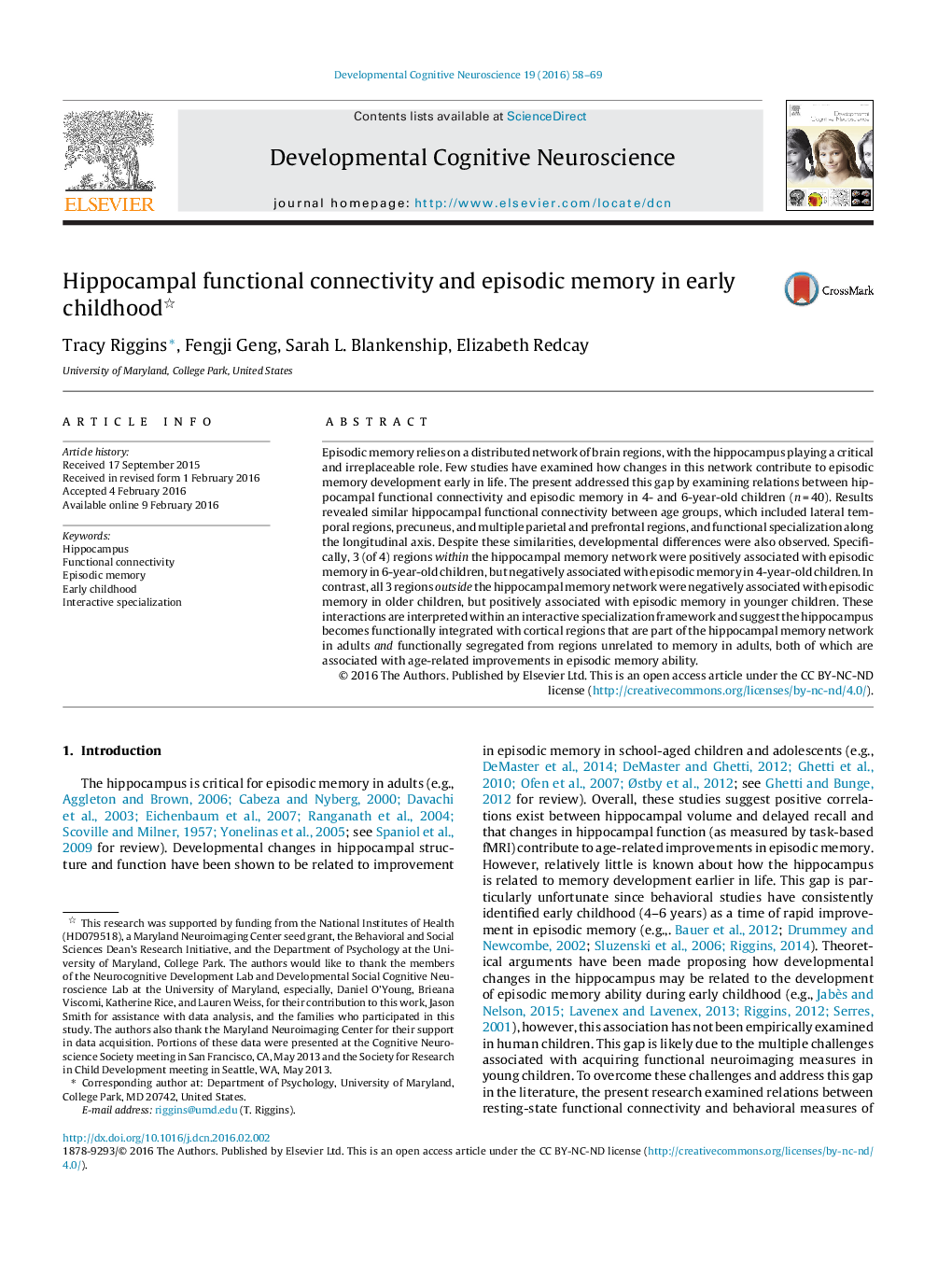| Article ID | Journal | Published Year | Pages | File Type |
|---|---|---|---|---|
| 4316435 | Developmental Cognitive Neuroscience | 2016 | 12 Pages |
Episodic memory relies on a distributed network of brain regions, with the hippocampus playing a critical and irreplaceable role. Few studies have examined how changes in this network contribute to episodic memory development early in life. The present addressed this gap by examining relations between hippocampal functional connectivity and episodic memory in 4- and 6-year-old children (n = 40). Results revealed similar hippocampal functional connectivity between age groups, which included lateral temporal regions, precuneus, and multiple parietal and prefrontal regions, and functional specialization along the longitudinal axis. Despite these similarities, developmental differences were also observed. Specifically, 3 (of 4) regions within the hippocampal memory network were positively associated with episodic memory in 6-year-old children, but negatively associated with episodic memory in 4-year-old children. In contrast, all 3 regions outside the hippocampal memory network were negatively associated with episodic memory in older children, but positively associated with episodic memory in younger children. These interactions are interpreted within an interactive specialization framework and suggest the hippocampus becomes functionally integrated with cortical regions that are part of the hippocampal memory network in adults and functionally segregated from regions unrelated to memory in adults, both of which are associated with age-related improvements in episodic memory ability.
